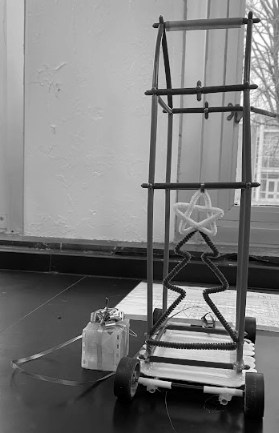Self-perpetuating cycle of blushing; Why we think turning cherry can be scary
February 15, 2022
Have you ever wondered why your face turns red when you feel embarrassed, sacred, or ashamed? Why your cheeks heat up when your crush is talking to you? Well, there is actually a lot of science to explain this natural phenomenon.
Blushing is an involuntary action that science teacher Mrs. Patricia Massetti says is a “reaction in response to adrenaline and can be used to cool the body down.” She adds it is powered by the sympathetic system which is in charge of your flight or fight response.
Blushing has been found to only be exhibited in humans. This has created an issue for those who believe humans evolved from animals. It poses the question that if humans came from lower animals, why is there no animal capable of blushing?
This involuntary response causes your blood vessels to dilate to improve the flow of blood and oxygen. The reason we blush most often in our face is because the blood vessels in our cheeks are wider and closer to the surface.
Often when people try to hold back blushing, it causes them to become redder. This is because blushing leads to more blushing because it is a “self-perpetuating cycle,” according to Doctor Azarani, an adult psychiatrist and psychotherapist in Brooklyn.
Massetti claims “she would not want people to see […] [her] blush because it can be seen as a sign of weakness.”
It has also been proven in a study conducted in 2009 that, if someone is told they are blushing when they are not, it can cause them to start blushing. In addition to just blushing from talking about it, different stares from others can affect how people blush.
In a study where people were watched while singing aloud, it revealed that they blushed on the side of the face being watched.
According to Indiana University’s researcher, Howard J Edenberg, not only do people blush from an emotional response, but alcohol consumption can also cause the reddening of the face. Alcohol releases metabolites that the body will try to break down. One of these metabolites known as acetaldehyde, is a toxin that causes the blood vessels in the face to dilate.
Doctor Marije ann het Rot explained “when you blush, others know that your emotional experience is true and sincere. When people blush in an embarrassing or shameful situation, they are more likely to be seen by others as likable and trustworthy than if they had not blushed.”
The science teacher agrees with this study because she said, “[She] would probably be more likely to forgive someone if they were blushing after doing something wrong.”
Sometimes people find it embarrassing when they are caught blushing and in extreme cases this can lead to Erythrophobia, a condition in which people have a fear of blushing.
Along with making it easier to be forgiven, blushing has also proven to be something that is attractive to men. Because blushing can be seen as innocent or feminine, it can make a female seem more attractive (Doctor Marje ann het Rot).
Pulled quote: In a study where people were watched while singing aloud, it revealed that they blushed on the side of the face being watched.






